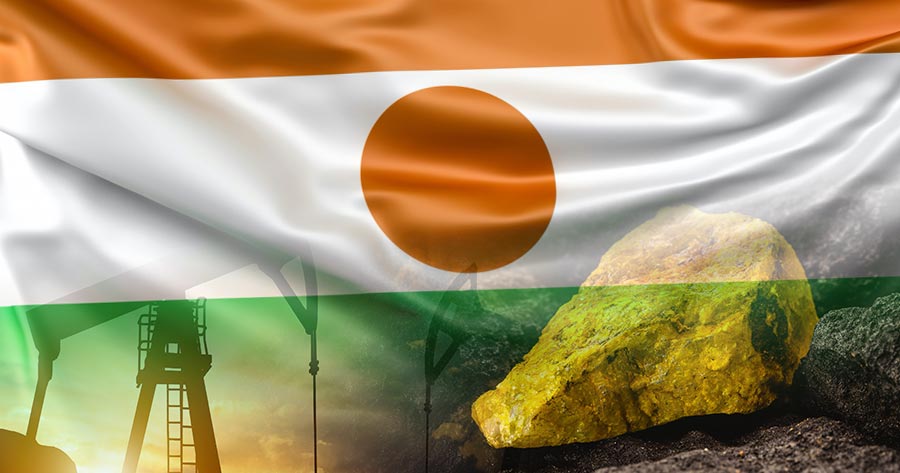The coup in Niger posts a larger impact to the global market than just being a turmoil in an African country, especially in the commodity market as the landlocked country is renowned for its uranium and a transition of gas pipe to Europe.
Tension in the country has been mounting for a month after a military junta ousted its democratically elected government in late July.
But what concerns investors and traders the most is the disruption on the commodity trading route as Niger sits on a huge pile of uranium that European countries are relying on.
Niger is one of the poorest countries in the world that relies on mining for its exports, which includes coal and uranium. It is the world’s seven largest uranium producer as of 2022, according to the World Nuclear Association (WNA). Beside its usage to treat cancer, uranium is the most widely used fuel for nuclear energy and also as a weapon.
France is the major importer of uranium from Niger, and French nuclear fuels company Orano said that it will continue to mine uranium despite the coup. Some experts believe that this will not have an immediate impact on the French nuclear power sector, but prices may eventually rise globally.
90% of the French companies receiving a concession to mine uranium in Niger are owned by the French government.
Historic data showed that tracing back in 10-year time, France had imported 88,200 tonnes of Uranium of which 27% was from Kazakhstan and 20% from Niger.
Uranium rose to $58.25 per pound on 21 August, extending its gains for a sixth week to levels last seen in 2022 amid persistent supply risks from Niger and long-term demand.
France could be sitting in a tough spot as the ousted President Mohamed Bazoum was said to be pro-Europe and close to France, which is Niger’s main importer in commodities. However, the country was overtaken by the new leader General Abdourahmane Tchiani, who allied with Russia and announced that Niger will cut exports of commodities to France.
Aside from uranium supply and price, plans for the $13 billion Trans-Saharan gas pipeline with a running capacity of 30 billion cubic meters per year are another major concern as the pipeline has to pass from Algeria through Niger and Nigeria.
The project is expected to fuel 11 countries along the African coast to Morocco and then be connected to the energy system of Spain or Italy that is seeking an alternative after the divorce with Russia.
Oil prices are maintaining at a higher level as the world’s benchmark Brent crude is trading slightly lower than $85 level, while the West Texas Intermediate is slightly below the $80 level. Meanwhile, OPEC and its allies are maintaining their supply cut and Saudi Arabia will most likely roll over a voluntary cut of 1 million barrels per day for a third consecutive month into October this year.
The benchmark Dutch TTF gas price went from EUR26.87 in late July to as high as EUR42.90 on August 22, before the climb started to regress. The gas price was last traded at EUR34.77 as on August 25, 2023.
According to the U.S. Energy Information Administration (EIA), Brent is expecting to average $83 a barrel this year, which has been revised up from earlier forecast of $79 a barrel.
Thailand’s stock market is dominated by the energy sector, accounting around 20% of the whole market, and the movement of oil prices usually reflect on major players in the Thai market such as PTTEP, SPRC, IRPC and PTT.
Notably, PTT Exploration and Production Public Company Limited (SET: PTTEP) rose from THB 118 per share or 35% from the beginning of 2022, boosted by the Russia-Ukraine war, OPEC’s production cuts and rising demand coming out of the pandemic.


